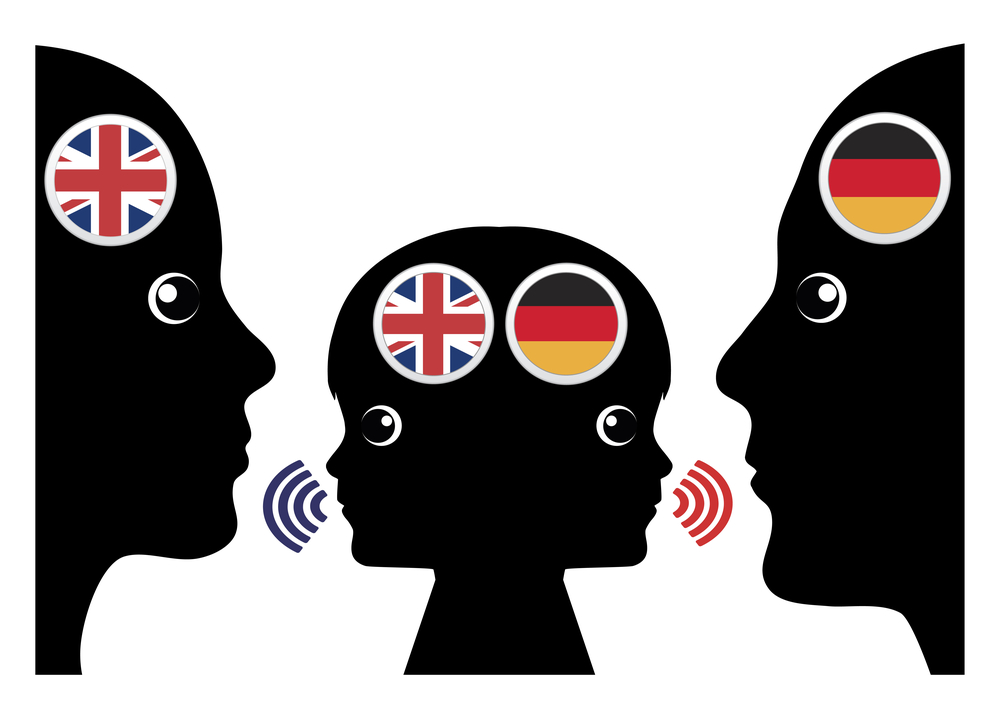A child’s formative years are critical when discussing the ability to acquire a new language. Adoption or migration at a very young age might affect a child’s capability to recall their native language and may lead to language attrition.
Your first language or mother tongue is the language that you were exposed to from birth into your early formative years. It is the language that most of us relate to very easily and often find ourselves most comfortable using.
During your college years, perhaps you studied a foreign language as part of your curriculum. Personally, I chose Spanish. As I began to learn more about the grammar and sentence construction, I found myself often translating it to my mother tongue. Marathi is my native language, but most of my daily conversations take place in English.
I now find myself switching from Marathi to English quite often and I’m typically at ease when I speak in English. However, am I worried that I will ever forget my first language? No, absolutely not.
Unfortunately, that’s not the case with every individual who knows more than one language. There are some people around the world who have no recollection of their first language, almost as if that fundamental knowledge never existed.
Before we answer the question at hand, let’s attempt to understand how humans learn a language and what might cause a person to forget their mother tongue.
How Do Babies Learn A Language?
Try to recall the way you learned your first language. What was your first word? I’m sure you are perfectly able to read and understand exactly what is written on this page, but have you ever wondered how?
Why is apple spelled a-p-p-l-e and pronounced the way it is? How are we able to form complex sentences with such ease? Well, we know this because we learned it when we were children. That’s what language acquisition is—the process by which humans gain the ability to understand and perceive language, including word formation and sentence construction.

Babies have the ability to learn quickly, and if spoken to in 2 different languages, they are able to identify the differences in both at a very young age. We all enjoy baby talk, and it is one of the most important ways for children to learn. Children who have never been spoken to will almost never acquire the ability to use language. I’m sure this will help you justify your baby talk next time someone looks at you like you’re a bit mad!
In fact, even before a baby is born, he/she is already exposed to language and is able to differentiate among 800 different sounds. A newborn baby’s brain is programmed to understand language. Just as a baby learns to walk even if it’s never taught how… it just knows. Many linguists also believe that language is genetic.
A few researchers believe that there is a ‘critical period’ during a child’s formative years when language acquisition is effortless. The critical period can be anywhere between infancy to the pre-teen period.
A two-year-old will probably eliminate the articles and grammar when forming sentences and the end product might sound something like big doggie running. That’s just a way of learning; eventually, as children study and practice, they are able to form complete sentences.
As you begin to learn a language, you start with the basics and eventually end up mastering it. It’s silly to expect a child to know the difference between the usage of a and an, but as an adult, we use that knowledge with extreme ease.
The case is slightly different when a child is exposed to a completely new language at a very young age. This is commonly seen with adopted children or with children who migrate to different countries during their formative years.
Also Read: Are Babies Born To Be Able To Speak More Than One Language?
How Does One Forget Their Native Language?
Language is flexible, and changes according to the environment of the individual. When you migrate to a different country with a different language, you almost always develop the ability to converse in that language. It is more about survival than anything else.
Language Attrition
As an adult, the chances of forgetting your native language are much less than for a child. Language attrition is the formal term for the gradual reduction or loss of linguistic abilities in an individual. In most cases, the language that is affected is the native or first language (L1). The lack of contact with the first language due to a change in environment results in a person’s gradual loss in proficiency.
A person who undergoes language attrition is commonly a bilingual or a multilingual individual whose L1 is being replaced by the second language (L2). Sometimes, a monolingual individual might experience language attrition too, but these cases are mostly due to aging.

The cases in which a child might forget his L1 is commonly seen among adopted children and those who migrate to a different country at a very young age. Such individuals have little or no access to their native language in the new environment.
There is a stark difference seen in children and their parents when we talk about language attrition. Children are far more prone to such attrition than parents, in which the L1 language has been imprinted so strongly.
Adopted Children Are More Susceptible To Language Attrition
The case is similar with adopted children. Over the past 50 years, the rate of adoption has increased considerably and most international adoptions are of children in the age group of 4-5 years. Such adopted children often experience language attrition. In most adoption cases, the adoptive families speak a language different than the child’s native language. It is safe to say that whatever language development took place before being adopted will soon be lost once the child is in the new environment with no exposure to his native language.
Can You Completely Forget Your First Language?
There has been a great deal of debate among researchers regarding this question. Language attrition is not only a consequence of change in environment, but is also due to certain psychological effects. It is quite possible that a child might still remember bits and pieces of his native language, even though he hasn’t been exposed to it for a long time. In other cases, there might be no recollection whatsoever.
A renowned study done by Christophe Pallier sheds light on the subject of whether the critical period of a child’s life plays an important role in language attrition. The Paris-based researchers tested adults who had been born in Korea and were adopted into French families at a very young age.
These adults claimed to have completely forgotten their native language and spoke flawless French with no foreign accent. The adults were exposed to 3 specific tasks to determine whether they could recollect their native language.
One was a language identification task where they had to identify Korean sentences among other sentences spoken in 5 different languages. The 5 languages, including Korean, were Japanese, Polish, Swedish and Wolof. The second was a word recognition task, in which they had to decide which of the Korean words was the correct translation of the French word. The third task was a fragment detection task, where they had to identify the Korean fragment of a short speech spoken in 5 different languages.
The results obtained were quite surprising; none of the adopted Korean individuals were able to distinguish Korean sentences among the other sentences from different languages. Their response to their known language, French, was similar to that of the French controls (individuals whose native language is French). It was concluded that the adopted individuals had completely forgotten their native language—Korean.
So, is it safe to say that you can completely forget your first language? That depends on whether you were exposed to it for only a brief period of your life before the attrition began.
Another study by a group of Swedish researchers was based on the idea that if re-exposure to the native language takes place over a long time, then the chances of completing forgetting the first language is reduced. Here too, Korean adoptees were studied who had spent a slightly longer time in Korea before being adopted.
It was concluded that if adoption happens at a later stage in an individual’s life, his recollection of a seemingly lost language may be easier to retrieve. In short, the answer to the question is that no, a person might never completely forget their native language.
Can A Traumatic Incident Affect Your First Language?
One’s first language is not lost completely, except in certain extreme cases. A first language is mainly lost due to some psychological factor attached with it, such as trauma.
This is seen in some elderly Germans who were German-Jewish wartime refugees and are now living in the USA or UK. They seem to have lost the ability to speak German, despite them having lived in Germany for most of their adult life. Here, the loss of their native language had nothing to do with their age, but with the painful memories they had experienced during the war.
The atrocities that the Nazis committed on such individuals left them with life-long traumatic memories. In order to to forget such heinous crimes committed on them, some of the survivors ended up forgetting their first language, German. Even though Germany was their homeland, it had become a land filled with painful memories, which subsequently resulted in their loss of the language.

Those survivors who left Germany earlier were able to speak better German than those who left later, during the war. Such cases of language attrition being caused by the psychological effects of trauma are uncommon.
Also Read: Are Some Languages Easier To Learn Than Others?
Conclusion
Language is deeply integrated in our brain and is one of the most fundamental forms of communication. As such, forgetting your first language seems almost impossible, but the reality is quite different.
Language attrition is a natural process that we may experience over time. It is not good or bad, just a consequence of the ever-changing world around us. When was the last time you spoke perfectly in your native language? Personally, it has been a while.
How language attrition affects different individuals depends on their personal experiences. Remembering your native language is a very personal capability. There might be two children in the same family who moved to a different country at the same time, but one child remembers his native language better than the other. As such, there’s no sure way of telling whether a certain experience might affect your language capabilities.
As mentioned earlier, a child is born with the ability to understand language. The only things that might affect this ability are the experiences he goes through during the course of life. These may help him master 2 languages with equal proficiency, or he may remember one with perfect accuracy, while the first one slowly fades away!
How well do you understand the article above!

References (click to expand)
- Pallier, C. (2003, February 1). Brain Imaging of Language Plasticity in Adopted Adults: Can a Second Language Replace the First?. Cerebral Cortex. Oxford University Press (OUP).
- Isurin, L. (2000, August). Deserted island or a child's first language forgetting. Bilingualism: Language and Cognition. Cambridge University Press (CUP).
- Schmid, M. S. (2002, May 7). First Language Attrition, Use and Maintenance. Studies in Bilingualism. John Benjamins Publishing Company.
- (PDF) Language Attrition - ResearchGate. ResearchGate
- FAQ: Language Acquisition | Linguistic Society of America. The Linguistic Society of America
